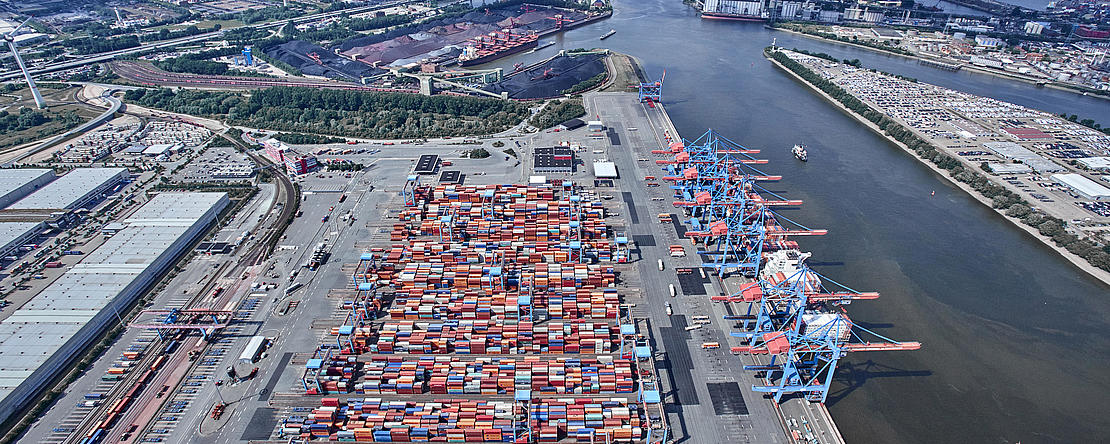13.07.2016
Efficient Coordination Now for Inland Vessels
The HVCC Hamburg Vessel Coordination Center is expanding its range of services. Alongside mega-ship and feeder traffic, it has also been coordinating the inland vessels that call at the Port of Hamburg since June 2016. Its first customer is shipping company Börde Container Feeder (BCF).

On behalf of BCF, the HVCC coordinates all of the company’s vessels that call at the Port of Hamburg. To enable it to do this, BCF sends the preliminary circuit planning for all of the container terminals to the HVCC. The HVCC staff agree with the terminals on the actual times and departures and send this information back to BCF. When there are changes to planned departures, the HVCC handles the necessary communication with all those involved, who benefit from having just one central contact for all operational issues. They also receive better prepared and more transparent information than before. BCF and HVCC have been testing their cooperation in a trial phase since November 2015, and regular operations have been under way since 1 June 2016. Ships belonging to BCF make around 70 calls per month at the terminals in Hamburg.
The HVCC comprises the Feeder Logistics Center (FLC) and Nautical Terminal Coordination (NTC) departments. The FLC has been coordinating feeder ship calls since 2004 and is the central point of contact for shipping companies and terminal operators in this respect. The NTC commenced its service in 2014 and ensures the efficient coordination of mega-ship calls – no matter whether they are container ships, cruise ships or bulk carriers. Inland shipping means that a third area of activity has now been added. The HVCC is a joint venture between the two terminal operators Hamburger Hafen und Logistik AG (HHLA) and EUROGATE Container Terminal Hamburg GmbH.
Heinrich Goller, Managing Director of the HVCC Hamburg Vessel Coordination Center, on working together with BCF, said: “By coordinating mega-ship and feeder traffic, we have created a unique selling point for the Port of Hamburg. And the fact that we are now making this service available to inland waterway shipping companies is a logical and sensible next step. All of those involved receive more information in a transparent manner. I am delighted that we have identified the mutual benefits by way of a very intensive process of exchange with BCF. Working together like this, we benefit from the experience we have gained in coordinating mega-ship and, in particular, feeder ship calls, and from the synergies that arise from coordinating vessels of different sizes.”